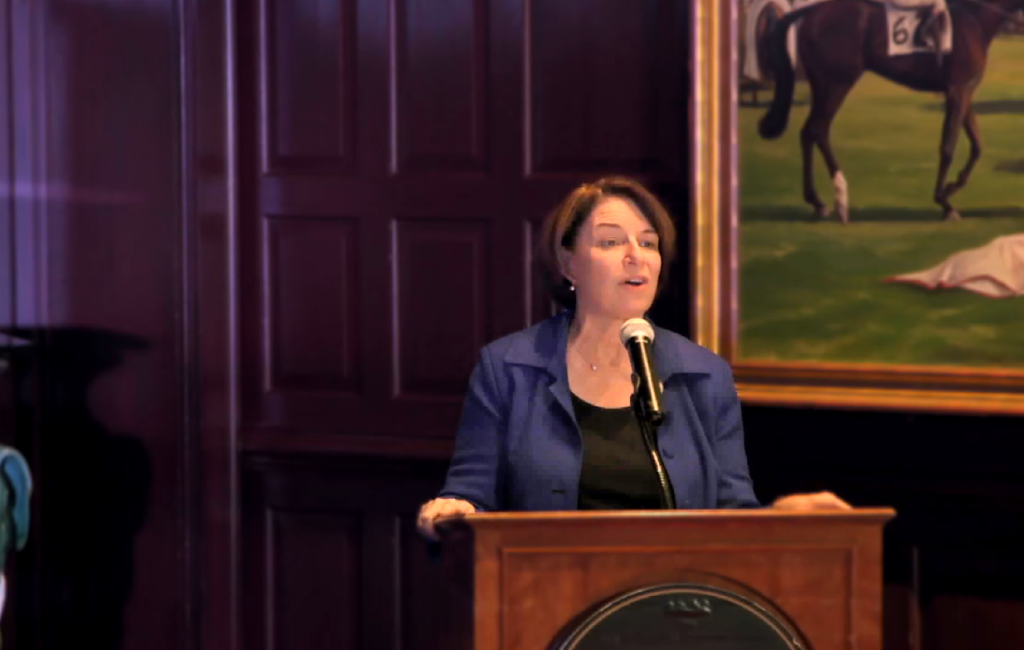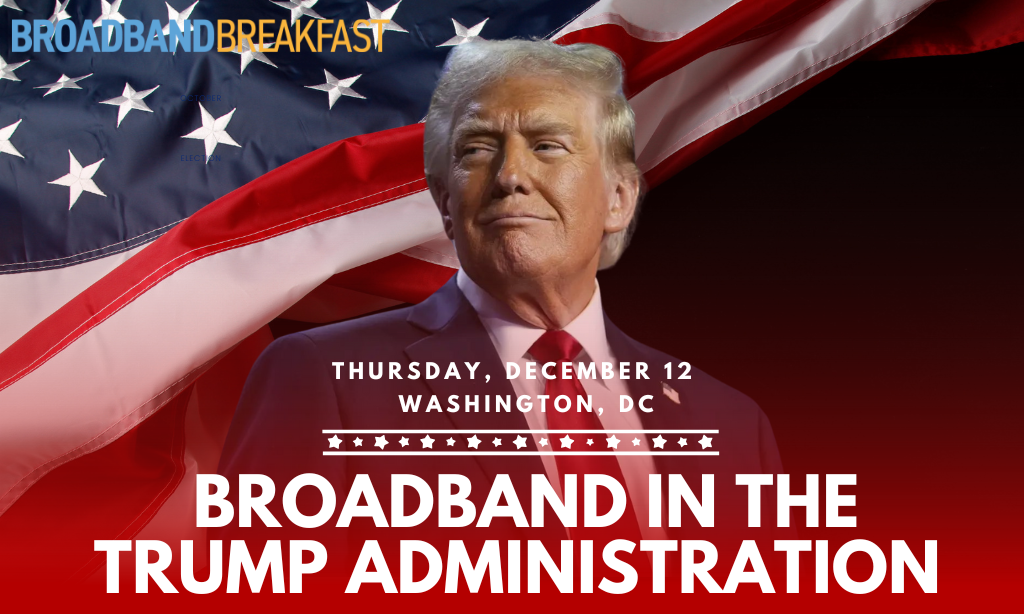Post-Chevron Could be ‘a Real Mess’: Klobuchar
The Supreme Court ended the practice of deferring to agency interpretations of ambiguous law this summer.
Jake Neenan

WASHINGTON, Dec. 12, 2024 – The third ranking Senate Democrat isn’t happy about the Supreme Court ruling that ended ‘Chevron deference’ this summer, effectively giving federal agencies less leeway to interpret their authority from Congress.
“I personally was not a fan of getting rid of Chevron,” Sen. Amy Klobuchar, D-Minn., said at a Broadband Breakfast event here on the communications agenda of the incoming Trump administration. “I’m sure that may open up some possibilities for people, but it also could be a real mess because a lot of how we move forward with our economy is that we have consistent rules in place.”
The decision ending Chevron, Loper Bright Enterprises v. Raimondo, nixed the judicial practice of deferring to federal agency interpretations of ambiguous statutes so long as the interpretations were reasonable. Now, an agency like the Federal Communications Commission has to defend its interpretation of a federal law as the best reading or it will lose in court.
The ruling does not apply retroactively, meaning past cases decided with Chevron deference weren’t automatically voided.
Klobuchar’s argument tracks with the view of Blair Levin, a policy advisor at New Street Research and a former FCC chief of staff in 1990s. He and fellow industry analyst Larry Downes wrote in the Harvard Business Review that the ruling essentially added a multitude of nonexpert decisionmakers into the regulatory process and made the permanence of any given policy uncertain for longer. Past Democratic FCC chairs had similar reactions to the decision.
Republican lawmakers, generally averse to expanding regulations, have looked more favorably on the ruling, seeing it as a check preventing agencies from acting unilaterally.
On the telecom front, major ISPs and mobile carriers have taken up the new line of attack, in addition to those offered by other recent Supreme Court rulings that roll back agency power. Court challenges to agency orders like net neutrality have included Loper Bright arguments, and in filings during recent rulemaking processes, ISPs argued the agency would be overstepping its newly restricted bounds by regulating broadband data caps or bulk billing agreements.
Those rulemakings will likely stop in their tracks under the Trump administration. For his part, incoming chairman Brendan Carr has called the Loper Bright decision “directionally a really good thing.”
Klobuchar wasn’t so sure.
“You can invest because you know what the rules are. If people don’t know what the rules are or they’re going to change, it makes it a lot harder,” Klobuchar said. “And then, of course, we’re going to have to figure out what level of detail we need to put in laws.”
 Broadband BreakfastBroadband Breakfast
Broadband BreakfastBroadband Breakfast











Member discussion